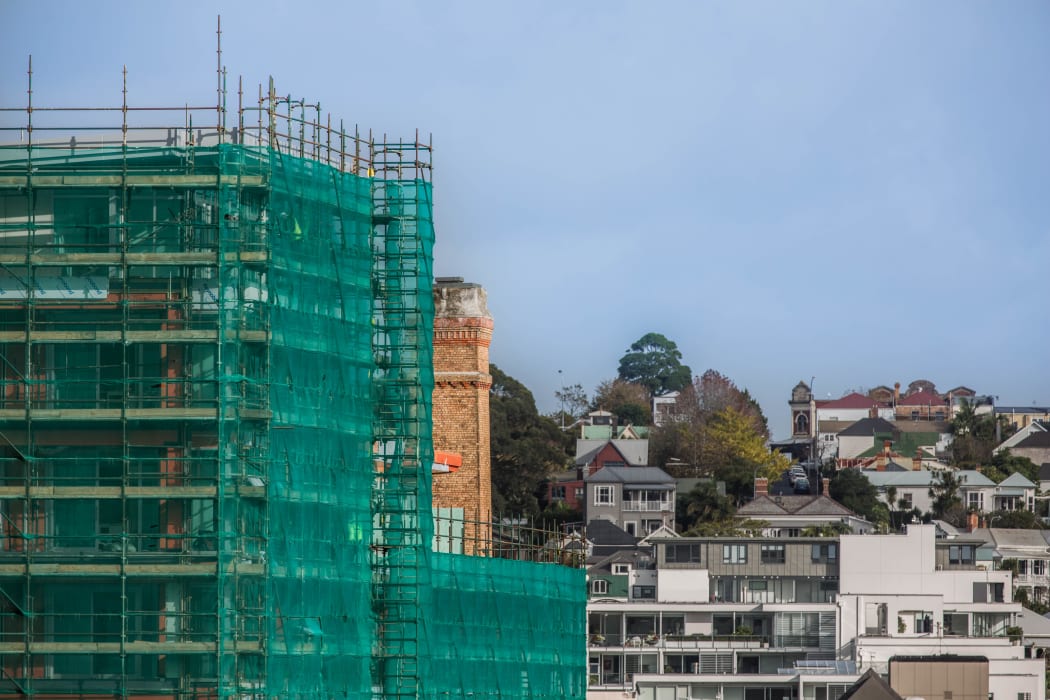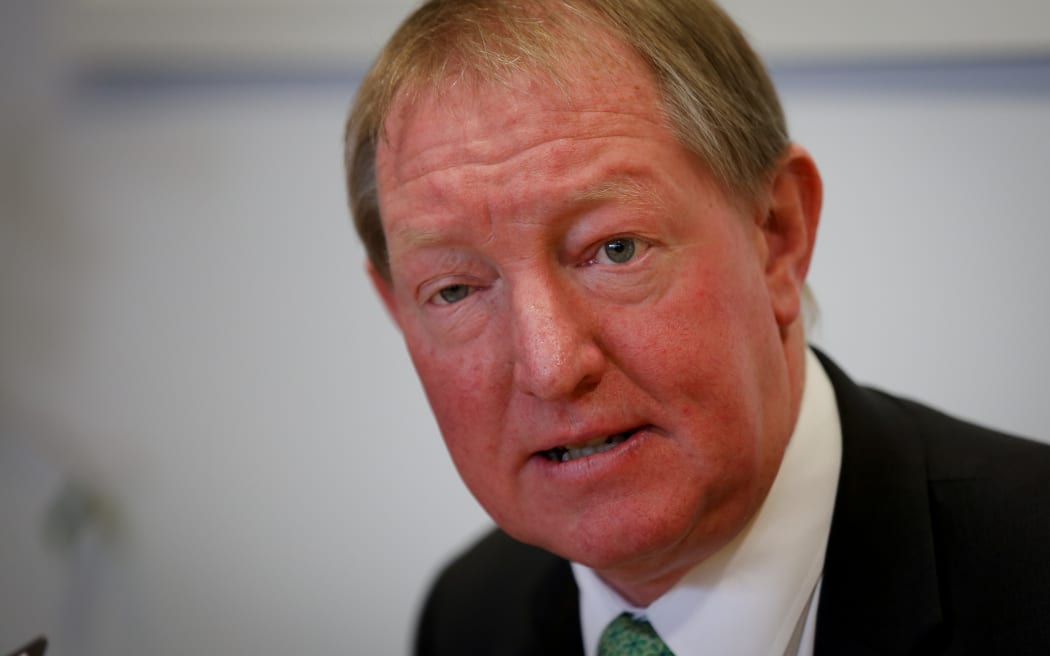Former Reserve Bank chair Arthur Grimes says Auckland property prices must come down by 40 percent, and has a few ideas about how the government could achieve it.

Dr Grimes says there's no reason not to have high-rise buildings in areas around Auckland's suburbs. Photo: RNZ / Cole Eastham-Farrelly
Now a senior analyst at Motu Research, Dr Grimes said although politicians were happy to talk about building more affordable housing they were unwilling to say how much they thought prices should fall.
Local and national government needed to accept that investors would lose money, and needed to deliberately collapse prices as soon as possible through intensification, seizure of land under the Public Works Act and greenfield development.
"I think we need to have some very explicit targets on house prices in Auckland if we're worried about the next generation," he said.
"Auckland council has actually gone quite a long way on this, they have actually said they want to bring house prices down to five times household incomes by 2030. That's a long way off - I'd quite like to get that brought forward and get that done much faster.
"Median house prices somewhere between $800,000 and $900,000 is way above most Aucklanders' possibilities of buying. We do need the government to flood the market with housing.
"And that's going to be two-fold, it needs to be through intensification and by expansion of the city's area."
He said house prices needed to be crashed by at least 40 percent which would bring them back in line with where they were just four years ago.
"And they were too high then, they were around 500,000 then.
"But also to list many of the crazy restrictions we've got on intensification, and to give you some perspective I was brought up, fortunately, on Tamaki Drive - all two-storey blocks and single houses. I just can't see any logic in preventing high-rise buildings all the way along there to enable tens of hundreds of thousands of people to live along there."

Arthur Grimes Photo: RNZ / Teresa Cowie
"It's where people want to live, so why not let them live there."
He said that in terms of expansion, Auckland was surrounded by farmland that could be bought through the public works act, with a premium paid to owners based on rural land values, but then infrastructure would need to be provided.
His comments come as the government has announced a new plan to loan $1 billion interest free to local councils to fund the new roading and water infrastructure needed for housing expansions.
The government would have to borrow the money to pay for the loans.
Building and Housing Minister Nick Smith said he accepted the loans might mean things would not happen in the order the Auckland Council wanted.
"That may mean that there may be some leapfrogging of development, that is, new residential development that is not right adjacent to the current urban-rural perimeter."
Dr Smith said the fund might also be available for projects in the urban area, if they led to a big boost in the number of homes that could be built there.

Building and Housing Minister Nick Smith Photo: RNZ / Alexander Robertson
Dr Grimes said rural landowners would not be able to make windfall profits from re-zoning.
"I think that uplift should go to the council as the council has made the change in zone, and that value should go towards building the infrastructure that's required.
The government hoped to finalise the loan scheme details by December, and be open for bids from councils early next year.
Dr Grimes said people who had already bought houses at inflated prices would lose out, but that was no different to in other parts of the country when prices had come down 20 to 30 percent in the past.
There was also not as much risk to the banking system as in other places in the world.
"Luckily in New Zealand we have a very strong banking sector, it's very well capitalised, most of their loans are to people who bought their houses well before four years ago, and so a large decrease in prices in Auckland would not have the same effect as it has elsewhere.
Dr Grimes admitted he was being deliberately provocative but said something did need to happen.
"And what I do is whenever I find a politician that says they want affordable housing I ask them a very simple question - how much do you want house prices to fall by overall. And not one of them has been able to answer that very simple question.
"My concern is that many of the policies that both local and central government have introduced in the last decade or so have been in the right direction but have been far too small to have an effect."

